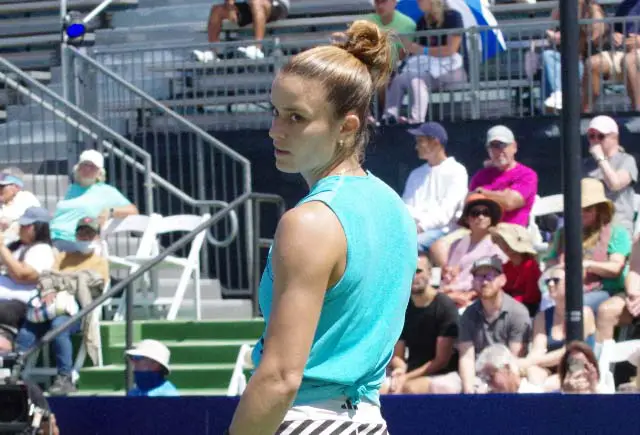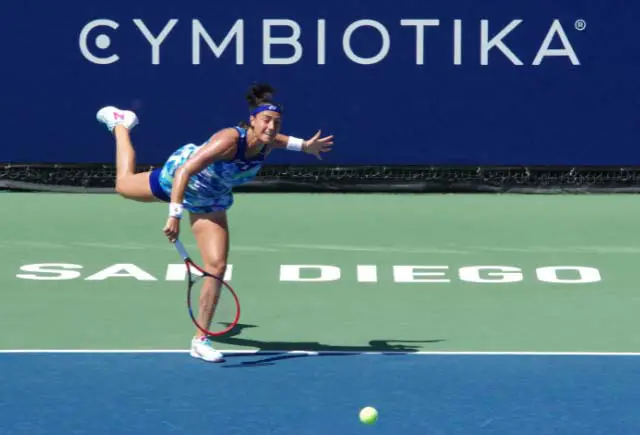Sports fans mostly think about doping when a scandal breaks, but for professional athletes, doping controls are part of everyday life. Following the announcement of a four-year ban for Romanian Simona Halep, Women’s Tennis Blog asked top WTA players in San Diego about their trust in the institutions that have immense but invisible power over their lives and careers.
Maria Sakkari: “It’s just scary. We’re gonna get to the point where we’re not gonna be taking even electrolytes.”

The 28-year-old Maria Sakkari expressed frustration with the mental burden placed on players with an outdated and unreliable testing regimen.
The way they’re handling every situation with any player or any athlete, it’s just scary. We’re gonna get to the point where we’re not gonna be taking even electrolytes. Thankfully, I haven’t been in that position and I never want to be there. I’m being very careful with anything that has to do with supplements.
The world number nine from Greece explained just how odd of a stressor this necessary practice can be:
I wake up almost every night to use the bathroom and if that’s close to my time slot then I’m just thinking ‘Do I go? Do I not go? Do I just wait, if they come?’ It’s just something very stressful.
Despite her frustrations with the Whereabouts app used to manage screenings, she reiterated her support for a clean sport:
It’s good for the sport and it’s good for sports in general. We keep it clean.
Caroline Garcia: “You can always make mistakes, but it’s very, very expensive mistakes.”

Caroline Garcia of France shared that sentiment, explaining the testing impact a little further:
Every day outside of tournaments it’s one-hour slots and you have to always keep it in mind. When you lose to a tournament or when you change plans last minute, you have to remember to change it.
The 29-year-old expanded:
It starts at a pretty young age and with time you get experience but you can always make mistakes, but it’s very, very expensive mistakes.
Nonetheless, the tour veteran adds:
This doping system happened because in the past we had some cheaters, so it’s good.
Barbora Krejcikova echoed her colleagues’ sentiments, saying that the constant availability “adds to the stress that we already have, but in the end, it’s part of it, it’s just the way it is.”
Danielle Collins: “If that’s the biggest problem we’re facing as athletes, I think life’s pretty good.”

Danielle Collins expressed appreciation for the efforts that go into keeping the sport fair. The American stated plainly:
I know it can be difficult keeping up with our supplements but if that’s the biggest problem we’re facing as athletes, I think life’s pretty good.
Across the board, players expressed that having a clean sport is worth the inconvenience caused by testing. While they might appreciate small changes to make it less burdensome, they are pleased to participate in a sport that emphasizes integrity and fairness.







